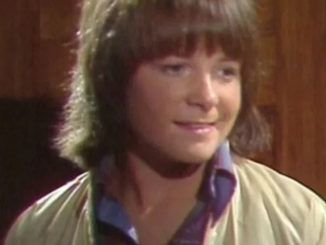
Debbie, living in a quiet neighborhood, becomes close to her elderly neighbor, Mrs. Jenkins, and begins to care for her. But when Deb’s mother has to undergo surgery, she has no option but to go home and care for her mother… only for her to receive a horrible phone call from Steve, Mrs. Jenkins’ son, accusing her of not doing enough.
Look, I didn’t want revenge on anybody, especially not for just being kind to an elderly neighbor.
I live in a quiet neighborhood, and my next-door neighbor, Mrs. Jenkins, is an 82-year-old widow. She’s frail, lonely, and honestly, sad. It’s like she’s been forgotten by her own family. Her only son, Steve, lives just 20 minutes away but rarely visits.
Whenever I saw her on the porch, she seemed so lost, staring off into the distance. My heart went out to her, so I started helping where I could.
For over a year, I’ve been running small errands. Groceries, appointments, clearing her driveway of leaves in the fall and snow in the winter.
“I don’t know what I’d do without you, Debbie,” she said to me one morning after I dropped off her groceries, including some freshly baked bread for her breakfast.
“I’m here for anything you need, Marlene,” I said.
Honestly, it wasn’t much, but I felt good knowing that I was helping. Especially since her real family was so absent.
“Steve?” she said one day when I asked about him. “That kid means everything to me, but I know I don’t mean as much to my son. It’s okay. You’re here.”
She would always smile like I was her favorite person.
This man, who barely knew his mother’s daily life, had the audacity to accuse me of not doing enough.
But things took a dark turn when I had to leave town for a few weeks. I couldn’t help it, my mother was in the hospital after being diagnosed with fibroids and cysts that needed to be removed.
I had to be there with her. There was no way about it.
“I’m coming, Mom,” I said. “Don’t you worry about a thing.”
“But, Deb,” my mother whined. “I don’t want to disturb your routine. Dad’s here, I’ll be fine with him.”
“Mom, I work from home. I can work from anywhere,” I said sternly. “And anyway, Dad’s idea of taking care of someone is making chicken noodle soup. That’s pretty much it. You’re going for invasive surgery. You need me.”
Before I left, I stocked Mrs. Jenkins’ house with groceries, made sure that she had everything she needed, and asked our neighbor Karen to check in on her from time to time.
“I’ll be back as soon as I can, Marlene,” I said. “Don’t you worry about a thing. And I’ve asked little Josh to come over and check your mail. He knows that if there’s anything in your mailbox, he has to bring it right to you.”
“Thank you, darling,” she said. “You’re too good to me.”
I thought I’d covered all my bases.
Ten days into my stay with my parents, my phone rang while I was cooking dinner. I didn’t recognize the number, but I picked up anyway.
“Debbie?” the voice snapped when I answered. “Are you the neighbor who’s supposed to be taking care of my mom?”
It was Steve. Mrs. Jenkins’ son. The man who barely showed up for his own mother.
For a second, I got nervous, hoping that nothing had happened to her.
“I just got a call from my mother,” he continued, not even stopping for me to speak. “She ran out of milk. And you’re out of town? Why didn’t you make sure she had enough before you left?”
I was absolutely floored. This man, who barely knew his mother’s daily life, had the audacity to accuse me of not doing enough.
Me?
“Steve,” I said, trying to remain calm. “I’m out of town because my mom is in the hospital. This is where I need to be. I stocked your mom up before I left. And I spoke to Karen, our neighbor, to check on her.”
Instead of apologizing or offering to help like any normal person, he shot back.
“Well, that’s just not good enough, Debbie. If you’re going to take care of my mother, then you need to do it right! I can’t be running around getting her things whenever you drop the ball.”
I almost screamed. The audacity of this man was astounding.
How could he accuse me of dropping the ball when I’d been doing everything for her? Especially while he sat back and did nothing!
I took a deep breath.
“Steve, she’s your mother. You can’t expect me to do everything for her while you’re right there, and do nothing! Maybe you should help her out for once.”
His response was just sad.
“You’re pathetic,” he said. “You don’t even do that much for her.”
Before I could retaliate, I just cut the call. I didn’t want to say anything worse, and I also didn’t want to risk it getting back to Marlene and upsetting her.
Later, as I sat with my mom in her hospital room, I couldn’t stop replaying that conversation. By the time I got home, I knew exactly what I needed to do.
“Go home, honey,” my mother said when I told her about Steve’s phone call. “I’m doing just fine, and my progress is great. The doctor is really happy with me. I told you, Dad and I will be fine!”
I really didn’t want to leave, but I missed my own home. And I missed working from my own space, too. So, I left a few days later.
When I got back, the first thing I did was check on Mrs. Jenkins. Thankfully, she was fine. It turns out that Karen had taken care of the milk situation, and Mrs. Jenkins had no idea about the chaos Steve had stirred up.
“What? Really? He said that?” she exclaimed, shocked.
Steve had to step up. He was not happy about it. Not at all.
As glad as I was that Steve hadn’t fed her any stories about me, I wasn’t going to allow him to get away with this.
The next day, I gently told Mrs. Jenkins that I wouldn’t be able to help her as much anymore.
“I have other commitments, Marlene,” I said sadly. “I have to check on my mother more often, too. She’s going to need me for the next few weeks.”
She looked disappointed, but she reassured me that she understood.
A few weeks went by, and Steve had no choice but to step up. Naturally, he wasn’t happy about it. Sometimes, as I worked from my living room, I could see him showing up to his mother’s house. He always looked irritated, like running an errand for his mother was the biggest burden anyone could have placed on him.
When I did visit Mrs. Jenkins next, she smiled and told me that she was relying on Steve more.
“I call him for everything,” she said. “Milk, teabags, and even help with the gutters.”
One afternoon, Mrs. Jenkins asked me to help her sort through some old papers. That’s when we stumbled upon her will.
Naturally, Steve was listed as the sole beneficiary.
“It’s a shame that Steve cannot spend more time with you,” I said casually. “You know, with work and whatnot.”
“I know, dear,” Mrs. Jenkins sighed. “But he’s been like that. Sometimes I think he only sticks around for what I’ll leave him.”
That was all the confirmation I needed.
“You know, Marlene,” I said. “You don’t have to leave everything to Steve. It might be nice to donate some to charity or leave something for the people who have always been there for you. That’s a sweet gesture. Think about it.”
“You’re right, Debbie,” she said. “I’ll think about it.”
A week later, Mrs. Jenkins updated her will. Steve still got his share, but she also included several charities to get vast portions of her estate. She left a little something for me, too, though I didn’t ask for it.
It wasn’t about the money. It was about showing Steve that neglect and greed have consequences.
When Steve found out, he stormed to my house, knocking furiously on my door.
“You convinced my mother to give away my inheritance? You manipulative little…”
I cut him off before he could finish his sentence.
“I didn’t convince her of anything. Maybe if you spent more time with her, you’d know what she really wanted.”
Steve spluttered, his face turning red. He shouted a few more insults and stormed off, but I could see it in his eyes.
He knew that he had lost.
Now, the lovely Mrs. Jenkins is happier than ever, and I’m taking her to the ballet later this week. Steve is sulking, likely regretting all the time he wasted.
Advertisement
And as for me? I’m happy knowing that Mrs. Jenkins isn’t being taken advantage of by Steve.
Sometimes, the best revenge is just letting someone realize their own failure.
What would you have done?
Sally Field: A Remarkable Journey Through Life
Sally Field, the renowned actress known for her captivating portrayals of matriarchal characters, has had an extraordinary journey filled with ups and downs that have shaped both her career and personal life.

From her humble beginnings to her current status as a beloved Hollywood icon, Sally’s story is one of determination, resilience, and embracing the beauty of natural aging.
Early Success
Sally Field’s career took off with her debut in the comedic TV show “Gidget” from 1965 to 1966. Despite its short lifespan, Sally cherished the experience and the opportunities it brought her, propelling her into the dazzling world of Hollywood.

Triumph Over Adversity
Sally’s path to success was not without its challenges. She had a difficult childhood, partly due to her stepfather. However, she discovered solace and escape through acting, eventually earning a spot at the prestigious Columbia Pictures acting school. With her unwavering drive and perseverance, Sally began honing her craft and took her acting skills to new heights.
Breakthroughs and Recognition
Sally’s breakthrough in Hollywood came with the 1976 film “Sybil,” which caught the attention of the industry and opened doors for her. One of her most notable performances was in the drama film “Norma Rae” in 1979, a role that earned her an Academy Award nomination for playing a union organizer.

Throughout her illustrious career, Sally Field has taken on a wide variety of roles in both TV shows and films, earning her respect and recognition in the industry. Her portrayal of Mary Todd Lincoln in the movie “Lincoln” garnered her an Oscar nomination, cementing her status as a talented and versatile actress.
Embracing Natural Aging
In an industry obsessed with youth and beauty, Sally Field made a conscious decision to age naturally and forego plastic surgery. She saw beauty in women who embraced their age gracefully and chose not to alter their features as they got older.

Cherishing Family Moments
Sally Field’s life took on a new dimension when she became a grandmother to five grandchildren. Embracing the role of a doting grandma, Sally found joy and fulfillment in creating precious memories with her beloved grandchildren.

A Legacy of Inspiration
Sally Field’s achievements continue to inspire others in the entertainment industry and beyond. Throughout her fruitful career spanning six decades, she has overcome great obstacles with grace, resilience, and a tenacious spirit.
Sally’s life exemplifies the power and kindness of a remarkable woman who leaves an indelible impression on the world.



Leave a Reply